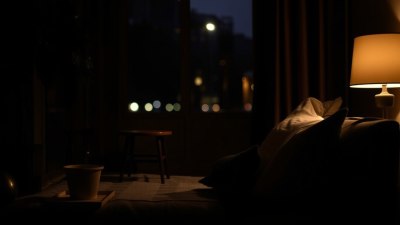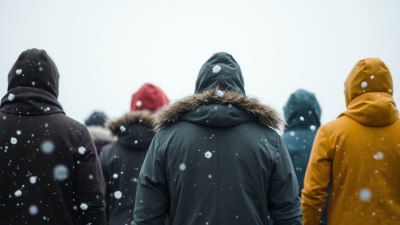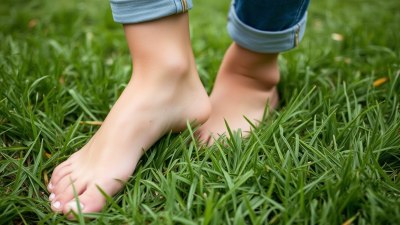Why Monday Mornings Hit Harder If It’s Still Dark Outside
Explore why Monday mornings feel tougher when it’s still dark outside and how darkness impacts mood and productivity.

Image created with Flux Schnell
Monday mornings have earned a reputation for being difficult, but when the alarm rings in deep darkness, the struggle can feel even greater. The interplay between natural light, human biology, mood, and productivity can make those early hours tougher to tackle. This article delves into why Monday mornings hit harder if it is still dark outside, drawing on neuroscience, psychology, and lifestyle factors to unpack this common experience.
The Role of Light in Human Biology
Humans are biologically wired to respond to cycles of light and darkness — the circadian rhythm. This internal clock, which roughly cycles every 24 hours, regulates sleep, hormone release, body temperature, and other vital functions. A key element influencing this rhythm is exposure to natural light, especially in the morning hours. Natural sunlight signals the brain's suprachiasmatic nucleus (SCN) to promote wakefulness and suppress melatonin, the hormone that induces sleepiness.
When the sun hasn't risen yet, and it's still dark outside during your Monday wake-up, this natural cue is missing. As a result, the brain remains in a state more closely aligned with night, maintaining higher melatonin levels longer and making the body feel less ready to emerge from sleep. This biochemical inertia makes it harder to get going.
Monday Mornings vs. Other Days
While mornings can feel rough on any day, Mondays have a psychological weight that exacerbates the sensation of difficulty. Coming off the weekend, our routines often shift. Sleep patterns may shift later, and leisure time may contrast sharply with the upcoming work demands. The anticipation of starting the workweek can cause an increase in stress and anxiety.
This anticipation, combined with waking up in darkness, creates a compounded effect — the psychological reluctance to face responsibilities meets the biological cue to stay asleep. The outcome is a heightened sense of sluggishness and emotional resistance to action.
The Impact of Darkness on Mood
Darkness in the morning is linked to a drop in mood for many people, partially due to its effect on serotonin, a neurotransmitter associated with feelings of well-being and happiness. Natural light exposure helps stimulate serotonin production. When mornings are dark, serotonin levels may remain low initially, contributing to feelings of grogginess, irritability, or even mild depression.
Seasonal Affective Disorder (SAD) is a condition that illustrates this phenomenon. During months with shorter, darker days, individuals with SAD experience significant mood disturbances, fatigue, and decreased motivation. Although SAD symptoms are more prevalent in winter, the principle that darkness influences mood applies broadly. Even outside of clinical syndromes, fewer morning light cues can subtly dampen mood and motivation.
Sleep Phase Delays and Social Jet Lag
Weekends often disrupt consistent sleep routines. Late nights followed by sleeping in can trigger social jet lag — a misalignment between the body's biological clock and social obligations. By Monday morning, this misalignment persists and feels particularly troublesome without sunlight to aid recalibration.
When Monday mornings arrive before sunrise, the lack of environmental cues makes it harder for the body to adjust quickly. Sleep inertia — the groggy state experienced upon waking — can linger longer and be more severe, especially when the sleep phase has shifted due to weekend habits.
Psychological Associations and Learned Behaviors
The cultural narrative around Monday as the start of hardship perpetuates the feeling that it’s more difficult. When Monday morning coincides with darkness, these psychological associations intensify. This can create a feedback loop where the physical discomfort of waking in darkness reinforces negative expectations about starting the week, which in turn amplifies the perceived difficulty.
Moreover, darkness can limit early morning motivation. Activities such as exercising outdoors or even a brisk walk to the bus stop are less inviting without daylight. The reduced physical activity compounds lethargy, reducing the release of endorphins that naturally boost mood and energy.
Light’s Effects on Cognitive Performance and Alertness
Exposure to bright light especially blue-enriched light has been shown to improve alertness, enhance cognitive performance, and reduce reaction times. Without these light cues in the morning, the brain exhibits slower cognitive responses, longer reaction times, and reduced concentration.
For many, the beginning of the workweek demands high cognitive functioning — planning, decision making, and problem solving. The darkness deprives the brain of an important environmental stimulant, possibly leading to procrastination or errors. This lowers productivity, making Monday mornings feel even more challenging.
Strategies to Combat the Effects of Darkness
While we cannot change the natural timing of sunrise, several practical strategies can curb the impact of waking in darkness on Monday mornings. One effective approach is the use of artificial bright light therapy. Light boxes that mimic sunlight can be used during morning routines to help reset the circadian rhythm and improve alertness.
Another strategy is optimizing morning routines to include exposure to indoor bright light sources as early as possible. Even positioning yourself near windows or using daylight-spectrum bulbs in living and working spaces can make a difference.
Additionally, maintaining a consistent sleep schedule, even on weekends, reduces social jet lag and helps the body's clock stay better aligned, making Monday mornings less jarring. A fixed wake-up time with gradual adjustment leading into winter months or periods of late dawn can prepare the body for early rising despite darkness outside.
Physical activity in the morning, such as light stretching or indoor exercise, stimulates circulation and endorphin release, counteracting the heaviness caused by darkness and inactivity. These habits combined bolster mood and energy even before natural light is available.
The Role of Melatonin and Cortisol
Melatonin production increases in the absence of light, signaling the body to prepare for sleep. Normally, light exposure suppresses melatonin release in the morning, signaling wakefulness. When it is still dark at wake-up, elevated melatonin can extend sleepiness and feelings of lethargy.
Cortisol, a stress hormone, follows a circadian pattern peaking shortly after awakening, helping to promote alertness and energy. The cortisol awakening response (CAR) is typically triggered or amplified by sunlight. Without the natural morning light, this cortisol peak can be blunted or delayed, making it harder to feel energetic and mentally sharp upon waking.
This hormonal interplay disrupted by prolonged darkness contributes to that heavy, resistant feeling to get out of bed. Understanding these mechanisms highlights how essential light is to our readiness to embrace the day.
Social and Workplace Implications
The phenomenon of darker Monday mornings especially affects workplaces and social productivity. Employees and students might arrive feeling less alert, less motivated, and encounter difficulty concentrating. This can have cascading effects on group dynamics, efficiency, and overall performance early in the week.
Employers and educators can consider flexible scheduling or providing bright, naturalistic indoor lighting to mitigate the effects. Recognizing the challenge can drive policies to ease the Monday morning transition and support mental well-being during darker months or early mornings.
Cultural Responses to Early Darkness
Different cultures react uniquely to the challenge of dark mornings. In Nordic countries, where long winter darkness is common, people have incorporated light therapy into daily life and have deeper societal awareness of the need for artificial light exposure to maintain well-being.
Social rituals, such as communal breakfasts or indoor light-filled social spaces, also help counteract feelings of isolation and lethargy linked to darkness. These practices highlight the importance of collective strategies for coping with environmental challenges.
Technological Innovations and Solutions
Technological advances provide new tools to address dark Monday mornings. Smart lighting systems, capable of gradually increasing brightness simulating dawn, help ease the waking process and shift circadian rhythms earlier. Such systems can serve as effective alarms that lessen sleep inertia and improve mood upon waking.
Wearable devices that track sleep and suggest optimal wake times based on sleep cycles also help users wake at lighter sleep stages, lessening grogginess even when it is still dark outside. Integration with smart home lighting enables a customized morning environment to promote alertness.
Future Research Directions
Ongoing research aims to better understand the nuanced relationship between darkness, circadian biology, and human psychology, including the individual differences that make some people more sensitive to light conditions than others.
Studies also explore how digital screen exposure at night affects melatonin production and the quality of morning wakefulness, potentially compounding issues related to dark morning environments. Understanding these interactions will improve recommendations and interventions for optimizing mood and alertness on dark early mornings, especially Mondays.
Monday mornings hit harder when it is still dark due to a complex interplay of biological, psychological, and environmental factors. The absence of natural light disrupts melatonin and cortisol rhythms, lowers serotonin levels, and delays the body's readiness to awaken fully. Psychological associations with Mondays intensify the emotional resistance to starting the week, while social jet lag worsens sleep inertia. These factors collectively impair mood, motivation, cognitive performance, and productivity.
Practical steps such as using bright light therapy, maintaining consistent sleep schedules, exposing oneself to bright indoor light, and incorporating morning exercise can help mitigate these effects. Cultural adaptations and technological innovations also provide promising approaches to make dark Monday mornings more manageable.
Understanding why darkness makes Monday mornings harder empowers individuals and organizations to adopt strategies that improve well-being and performance despite environmental challenges.











